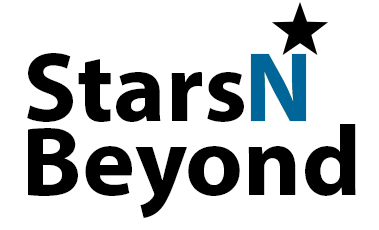Agriculture, Environment and Veterinary Science
Specialisations
This discipline covers a large study area including the following specialisations:
|
Agribusiness; |
Land and Water Management; Sustainable Development; Tropical Animal Science; Veterinary Science; Viticulture; Wilderness Reserves and Wildlife; Wine Marketing/Science; and Zoo-keeping. |
Qualifications
Agriculture, Environment and Veterinary Science disciplines are offered at the following qualifications levels:
|
Certificate |
Y |
|
Diploma |
Y |
|
Advanced Diploma |
Y |
|
Bachelor Degree |
Y |
|
Graduate Certificate |
Y |
|
Postgraduate Diploma |
Y |
|
Masters by research/coursework |
Y |
|
Professional Doctorates |
N |
|
PhD |
Y |
Most specialisations listed above are offered at all levels of academia. An exception to this is Veterinary Science. The Bachelor of Veterinary Science provides graduates with the qualification to practise as a Veterinarian. This course is only offered at the university level. In most other specialisations, pathways are available for students wanting to upgrade from Certificates to Diplomas to Advanced Diplomas and on to university studies.
Most qualifications at both vocational and university levels include practical hands on experience.
Vocational Education and Training Programs
Typical programs offered at TAFE and private colleges include:
|
LEVEL |
QUALIFICATION |
|
Certificate |
Certificate in Forest and Forest Products; |
|
Diploma |
Diploma of Agriculture; |
|
Advanced Diploma |
Advanced Diploma of Renewable Energy. |
Typically, Certificates have the lowest entry requirements and Advanced Diplomas the highest. Most agricultural, environmental and vet nursing courses offered through a TAFE or private college do not have pre-requisite subject requirements. Examples of typical entry requirements for this discipline include:
- Certificate I in Conservation and Management – there are no specific entry requirements.
- Diploma of Agriculture – completion of the equivalent of Australian grade 12 (including: completion of A Levels; All Indian Secondary School; or International Baccalaureate).
University Programs
Entry requirements into Bachelor Degree programs are higher than vocational programs. Examples of courses offered in agriculture, environmental and veterinary science fields include:
|
LEVEL |
QUALIFICATION |
|
Undergraduate |
Diploma of Applied Science; |
|
Postgraduate |
Masters of Tropical Veterinary Science; Masters by Research; and |
Undergraduate
In most cases, for admission into an undergraduate program students are required to complete qualifications equivalent to Australian grade 12, as well as fulfilling subject prerequisites. Typically Veterinary Science has higher entry requirements than environmental based programs followed by agricultural based programs. For example:
- Bachelor of Agriculture – entry requirements range from A Level requirement of 5 to 6 points and students must have achieved a pass in Chemistry or Physics and Mathematics at high school.
- Bachelor of Environmental Science – entry requirements range from A Level requirements of 9 points down to 5 points and student must have achieved a pass in Chemistry or Physics and Mathematics at high school.
- Bachelor of Veterinary Science – typically has an entry requirements of 13 A Level points and prerequisite subjects of Mathematics, English, Physics and Chemistry and has quota restrictions. Postgraduate Postgraduate programs offered in this discipline provide:
- re-training of non-professionals;
- up-grading qualifications;
- specialised training in specific fields. The graduate courses designed for students without a relevant degree have lower entry requirements than those courses provided to students upgrading their qualifications in the field.
4
Postgraduate research programs usually require students to have completed a Bachelor Degree with Honours I or II. Select universities have pathways available to students wishing to complete a research degree without Honours.
Pathways
There are several pathway options for students interested in the Agriculture and Environmental disciplines. Fewer pathways exist for students wanting to enrol in Veterinary Science. Many universities offer Diploma and Certificate program articulation pathways to Bachelor Degree levels.
Professional Associations
Most of the programs offered within this discipline include hands-on practical experience such as: laboratory experiments; field studies and research assignments. This experience provides graduates with on-the-job skills before graduation.
Graduates may be eligible for membership at one of the following professional associations:
|
Agriculture |
|
|
Environment |
|
|
Fisheries |
|
|
Forestry |
|
|
Horticulture and Viticulture |
|
|
Veterinary Science |
|
Career Opportunities
|
Agricultural Scientist/Engineer; Animal Attendant; Aquaculture Technician; Environmental Scientist; Farmer/Farm Worker; Gardener/Landscaper; Greens Keeper; |
Horticulturalist; |
Useful Information
Government sites
- Australia – Country Information (DFAT)
- Australian Demographic Statistics, March 2011 (ABS)
- Public Holidays Tourism sites
- Australian Capital Tourism Corporation
- Tourism New South Wales
- Northern Territory Tourism Commission
- Tourism Queensland
- South Australian Tourism Commission
- Tourism Tasmania
- Tourism Victoria
- Western Australian Tourism Commission Weather Information
- Rainfall and Temperature graphs (BOM)
- you also can find weather information about cities around the world from World Climate. Standard Times Australia has both Standard Times and Daylight Saving Times (note that GMT stands for Greenwich Mean Time).
|
TIME |
STATE / TERRITORY |
GMT |
EXAMPLE |
|
Eastern Standard Time (EST) |
New South Wales Australian Capital Territory Victoria |
+ 10 |
5:00pm |
|
Central Standard Time (CST) |
South Australia Northern Territory |
+ 9.5 |
4:30pm |
|
Western Standard Time (WST) |
Western Australia |
+8 |
3:00pm |
Daylight Saving Times
|
TIME |
STATE / TERRITORY |
GMT |
EXAMPLE |
|
Eastern Daylight/Summer Time (EDT) |
New South Wales Australian Capital Territory Victoria |
+ 11 |
8:00pm |
|
Central Daylight/Summer Time (CDT) |
South Australia |
+ 10.5 |
7:30pm |
|
Western Daylight/Summer Time (WDT) |
Western Australia |
+ 9.0 |
6:00pm |
|
No Daylight Saving Times – use Standard Times |
Queensland Northern Territory |
+ 10 + 9.5 |
7:00pm 6:30pm |
Refer to the Bureau of Meteorology for the start and finish dates of daylight saving times.
